Eurozone Inflation Falls to 2.2%, ECB Rate Cut Likely in September
By Rediff Money Desk, Frankfurt Aug 30, 2024 14:52
Inflation in the Eurozone dropped to 2.2% in August, paving the way for a potential interest rate cut by the European Central Bank in September. The ECB aims to maintain stable prices and support economic growth.

Illustration: Dominic Xavier/Rediff.com
Frankfurt (Germany), Aug 30 (AP) Inflation in the 20 European Union countries that use the euro fell sharply to 2.2 per cent in August, opening the door for the European Central Bank to cut interest rates as the ECB and the US Federal Reserve prepare to lower borrowing costs to support growth and jobs.
The August figure was down from 2.6 per cent in July, according to figures Friday from European Union statistics agency Eurostat. Energy prices fell in August by 3 per cent, helping lower the overall figure, while inflation fell to 2 per cent in Germany, the eurozone's largest economy.
The monthly figure is now close to the ECB's target of 2 per cent, the level considered best for the economy. The central bank is charged with maintaining stable prices under the treaty that set up the European Union. Not all of the EU's 27 countries use the euro.
Economists expect the ECB to cut its key rate by a quarter point from 3.75 per cent at its September 12 meeting, while the Fed is expected to cut rates from a 23-year high of 5.25-5.5 per cent at its September 17-18 policy meeting.
The lower German inflation figure tilts the balance toward a September rate cut, said Carsten Brzeski, global chief of macro at ING bank. Fading inflationary pressure combined with fading growth momentum offer an almost perfect macro backdrop for another rate cut.
Economists caution that the path downward to 2 per cent may yet be a bumpy one. The ECB has said it expects inflation to fluctuate going forward but to fall to its target by the end of next year.
Central banks sharply raised interest rates to counter an outburst of inflation caused by a spike in energy prices following Russia's invasion of Ukraine, and by clogged supply chains for parts and raw materials as the global economy bounced back from the COVID-19 pandemic.
Higher rates can quell inflation by making it more expensive to borrow and buy things, reducing demand for goods and thus taking pressure off prices. Europe's inflation has now fallen a long way from the 10.6 per cent it reached in October 2022.
But higher rates can weigh on growth as well, and those concerns have come to the fore in both Europe and the US.
While unemployment rates remain low in both economies, central bankers are becoming wary of keeping rates too high for too long and seeing people lose their jobs or the economy tip into recession. It is a tricky balance since the impact of rate moves comes only with a delay of months.
The August figure was down from 2.6 per cent in July, according to figures Friday from European Union statistics agency Eurostat. Energy prices fell in August by 3 per cent, helping lower the overall figure, while inflation fell to 2 per cent in Germany, the eurozone's largest economy.
The monthly figure is now close to the ECB's target of 2 per cent, the level considered best for the economy. The central bank is charged with maintaining stable prices under the treaty that set up the European Union. Not all of the EU's 27 countries use the euro.
Economists expect the ECB to cut its key rate by a quarter point from 3.75 per cent at its September 12 meeting, while the Fed is expected to cut rates from a 23-year high of 5.25-5.5 per cent at its September 17-18 policy meeting.
The lower German inflation figure tilts the balance toward a September rate cut, said Carsten Brzeski, global chief of macro at ING bank. Fading inflationary pressure combined with fading growth momentum offer an almost perfect macro backdrop for another rate cut.
Economists caution that the path downward to 2 per cent may yet be a bumpy one. The ECB has said it expects inflation to fluctuate going forward but to fall to its target by the end of next year.
Central banks sharply raised interest rates to counter an outburst of inflation caused by a spike in energy prices following Russia's invasion of Ukraine, and by clogged supply chains for parts and raw materials as the global economy bounced back from the COVID-19 pandemic.
Higher rates can quell inflation by making it more expensive to borrow and buy things, reducing demand for goods and thus taking pressure off prices. Europe's inflation has now fallen a long way from the 10.6 per cent it reached in October 2022.
But higher rates can weigh on growth as well, and those concerns have come to the fore in both Europe and the US.
While unemployment rates remain low in both economies, central bankers are becoming wary of keeping rates too high for too long and seeing people lose their jobs or the economy tip into recession. It is a tricky balance since the impact of rate moves comes only with a delay of months.
Source: ASSOCIATED PRESS
DISCLAIMER - This article is from a syndicated feed. The original source is responsible for accuracy, views & content ownership. Views expressed may not reflect those of rediff.com India Limited.
You May Like To Read
TODAY'S MOST TRADED COMPANIES
- Company Name
- Price
- Volume
- Vodafone Idea L
- 15.63 ( -4.17)
- 51716103
- Srestha Finvest
- 1.94 ( -1.02)
- 39556969
- Inventure Growth & S
- 2.47 ( -19.81)
- 31916723
- Genpharmasec Ltd
- 3.51 ( -4.88)
- 21009955
- GTL Infrastructure
- 2.68 ( -0.37)
- 16825789
MORE NEWS

Gold Price Rises Rs 100, Silver Remains Flat | PTI
Gold prices in India rose by Rs 100 to Rs 74,350 per 10 grams on Friday due to...

BPCL Plans New Refining ''Petrochemical Complex...
BPCL plans to build a new refining and petrochemical complex in India to meet growing...

Transformers and Rectifiers (India) Wins Rs 252...
Transformers and Rectifiers (India) Ltd secures new orders worth Rs 252 crore,...





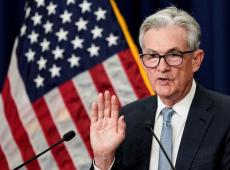
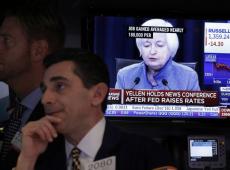
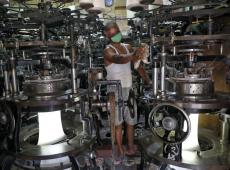
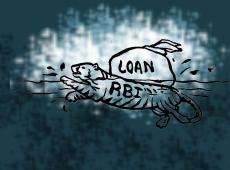


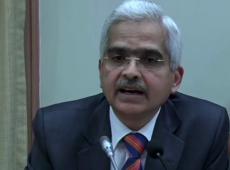
 © 2024 Rediff.com India Limited. All rights reserved.
© 2024 Rediff.com India Limited. All rights reserved.